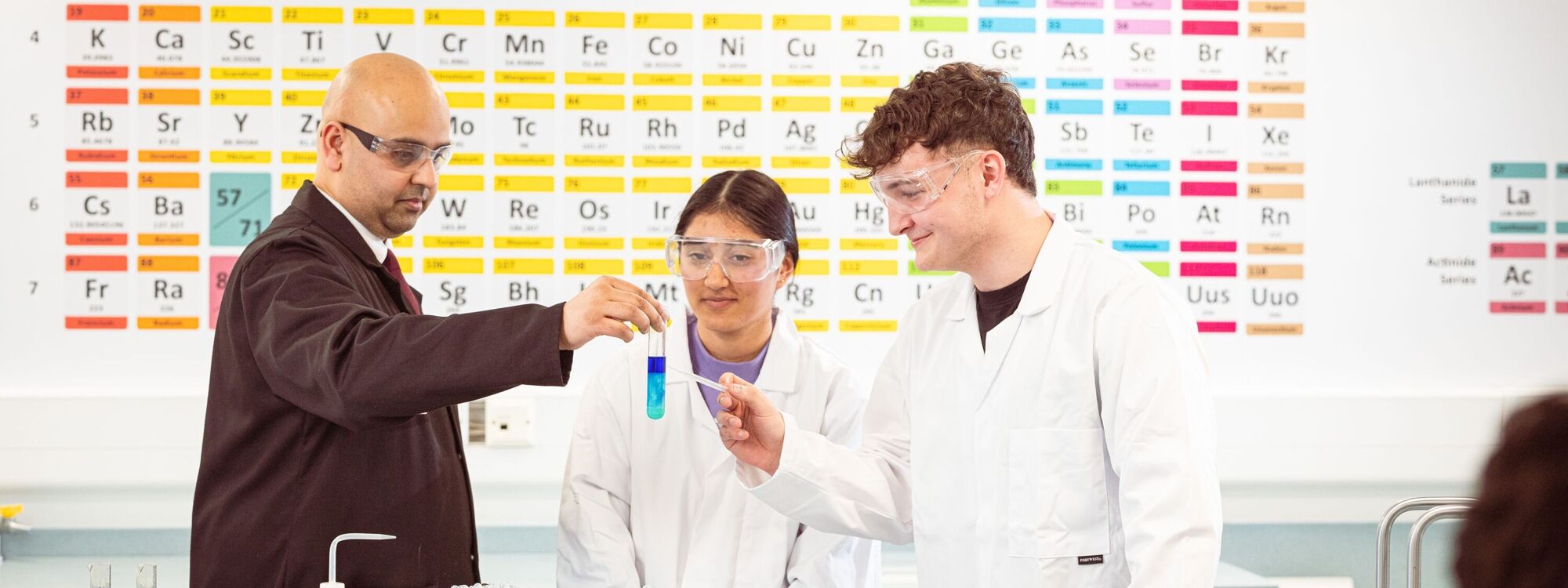Chemistry is the study of matter, its properties, and how and why substances combine or separate to form other substances. It also involves the study of how these substances interact with energy.
Entry requirements
To study at RSFC, you must have achieved a minimum of five GCSEs or equivalent at grade 4 or above across four separate subjects, including GCSE Mathematics and/or English Language. In addition, a grade 6-6 or above is required in GCSE Combined Science, or grade 6 in two separate sciences. You must also achieve a grade 5 or above in GCSE Mathematics and a grade 4 or above in English Language.
Why study this course?
You will develop your skills in problem-solving, analysis and the ability to understand and analyse complex data and abstract concepts. You will cultivate a vast range of skills that are transferable to further study and employment.
What can you expect from A level Chemistry?
The Chemistry course is split into two main sections: physical chemistry and organic chemistry. In physical chemistry there is a strong mathematical focus as you develop an understanding of quantities of atoms and energy. In organic chemistry you will learn how to synthesise many of the molecules we encounter in everyday life.
KEY TOPICS
YEAR 1
• Bonding – you will learn about how different types of atoms form different structures These differences explain the different properties of materials we use day-to-day.
• Amount of substance – the mathematical core of chemistry that will enable you to calculate the quantities of reactants and products in a reaction.
• Organic chemistry – you will take your first steps into the vast array of different molecules and reactions that all have carbon in their structure.
YEAR 2
• Acids and bases – you will study and experiment with different types of acid and learn how to make a buffer solution.
• Transition metals – these precious elements have a colourful chemistry of their own. Discover the origins of their properties and their uses.
• Organic chemistry – discover the chemistry that underlies the make-up of life by studying condensation polymers, amino acids and DNA.
What can I do with a qualification in Chemistry?
Chemistry is either required or strongly recommended for many degree courses, such as Medicine, Pharmacy, Dentistry, Engineering and Veterinary Medicine. Many students wishing to study Law at university or become an Accountant may also choose to study Chemistry as it demonstrates the ability to cope with challenging concepts.
How is this course assessed?
You will complete three examinations at the end of the two-year course. These examinations provide your final grade. The practical experiments that you will complete throughout the course will contribute to a practical skills certificate.
Who is this course for?
If you have an interest in science and a desire to develop a greater understanding of how physical sciences shape the world around us, then Chemistry is the subject for you.


